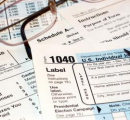The change affects businesses that do not maintain "an applicable financial statement" (i.e., don't regularly produce audited financial statements). It applies to amounts spent to acquire, produce or improve tangible property that would normally qualify as a capital item. For taxpayers with an applicable financial statement (i.e. audited financial statements), the de minimis or small-dollar threshold remains $5,000.
The new $2,500 threshold applies to any such item substantiated by an invoice. As a result, small businesses will be able to immediately deduct many expenditures that would otherwise need to be spread over a period of years through annual depreciation deductions.
As before, businesses can still claim otherwise deductible repair and maintenance costs, even if they exceed the $2,500 threshold.
The new $2,500 threshold takes effect starting with tax year 2016. In addition, the IRS will provide audit protection to eligible businesses by not challenging use of the new $2,500 threshold in tax years prior to 2016.
Further details on this change can be found in Notice 2015-82, posted today on IRS.gov.
For help with your legal needs contact a business, tax, and health care law attorney at the offices of AttorneyBritt.
Review-Like-Follow AttorneyBritt On:


No comments:
Post a Comment